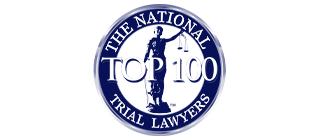Park Fire Overview
 The following are some facts regarding the Park Fire of 2024 in California:
The following are some facts regarding the Park Fire of 2024 in California:
- The Park Fire affected 429,603 acres in Butte and Tehama counties.
- Authorities believe the fire started due to arson.
- The incident was managed by CAL FIRE Butte Unit, CAL FIRE Tehama-Glenn Unit, USFS Southwest Incident Management Team 2, and Lassen National Forest.
- Governor Newsom declared a state of emergency and secured federal assistance for the fire.
- There have been 54 structures damaged and 709 structures destroyed.
- Fortunately, there have been no reported fatalities or injuries.
- Numerous resources, including personnel, helicopters, engines, dozers, water tenders, and crews, were assigned to the fire.
- Various agencies, including law enforcement, conservation organizations, and utility companies, are involved in the response efforts.
Wildfires such as the Park Fire eat up significant resources for containment and evacuation efforts. Even with top resources and response efforts, these wildfires can still destroy substantial property in a short time.
Following containment, many people must seek financial recovery for the physical property and business income they lost due to the fire. Even though no injuries or fatalities occurred, the Park Fire resulted in costly losses, and insurance companies will have backlogs of claims and will not make it simple for claimants.
Anyone with a Park Fire claim should seek assistance from our Park Fire insurance attorneys at Reiner & Frankel, LLP now.
How Much Is My Park Fire Insurance Claim Worth?
A Park Wildfire claim can involve several forms of compensation, depending on the extent of your losses. Here is a breakdown of the most common types you may seek:
- Property Damage Compensation – If the wildfire destroyed or damaged your home or personal property, you can claim compensation to repair or replace it, including the cost of rebuilding your home, repairing damaged structures, and replacing personal belongings such as furniture, electronics, and clothing.
- Loss of Use Compensation – If your property is habitable but temporarily unusable due to smoke damage or safety concerns, you can claim compensation for the loss of use, which often covers costs related to temporary housing or renting an alternative residence while your home is being repaired.
- Evacuation Cost – Compensation for evacuation expenses can cover the costs incurred from evacuating your home, including travel, temporary accommodation, and other related expenses. This compensation may also include reimbursement for meals and essentials purchased while away from home.
- Medical Expenses – If you or your family members suffered health issues due to smoke inhalation or injuries during the evacuation, you can seek compensation for medical treatment, including hospital bills, doctor’s visits, medications, and ongoing therapy.
- Emotional Distress – Wildfires can have significant psychological effects. You may be entitled to compensation for emotional distress or mental health issues resulting from the trauma of losing your home or experiencing the disaster.
- Business Interruption Losses – If you own a business that has been affected by a wildfire, you can claim compensation for lost income during the period your business was unable to operate. This compensation also covers the costs of repairing or replacing business assets damaged in the fire.
- Additional Living Expenses – This form of compensation covers the increased cost of living while your property is being repaired or rebuilt. It includes costs such as higher utility bills or increased expenses for temporary housing.
Most Common Causes of Wildfires in California
In California, wildfires can result from various causes, and if you are affected, you can pursue an insurance claim depending on the circumstances. Here are the most common causes:
- Human Activity – Human actions cause a significant number of wildfires, including campfires that are not fully extinguished, discarded cigarettes, and fireworks. Even though these actions may seem minor, they can ignite dry vegetation and lead to large fires.
- Arson – Deliberate acts of arson, where someone intentionally sets a fire, are a serious concern. If arson is the proven cause of a wildfire, the responsible party can be liable, and victims may pursue claims for damages through their insurance or legal action against the arsonist.
- Electrical Equipment – Faulty or malfunctioning electrical equipment, including power lines and transformers, can spark wildfires. Utility companies are often responsible for damages if their equipment causes a fire, and insurance claims may cover the resulting damages.
- Vehicle Sparks – Sparks from vehicles, especially those with mechanical issues or off-road vehicles, can ignite dry vegetation. If a vehicle is the cause of a wildfire, insurance claims can potentially cover damages resulting from the fire.
- Lightning Strikes – Natural causes like lightning strikes can also start wildfires, especially in areas with dry vegetation. An individual affected by the wildfire may pursue an insurance claim if the lightning strike causes extensive damage; however, filing a claim often depends on the specifics of the insurance policy and local regulations.
- Burning Debris – Sometimes people burn debris such as leaves or trash in outdoor areas, and if they do not properly control these burns, they can spread and cause wildfires. If such burning is found to be the cause, insurance claims may address the damages the fire caused.
If a wildfire has affected you, it’s important to document the damage thoroughly and understand your insurance policy’s coverage. In many cases, pursuing a claim involves proving the cause of the fire and how it led to your losses.
Most Common Losses in the Park Wildfire
 In the California Park Fire, the range of losses can be extensive, affecting both property and personal well-being. The following are the most common types of losses you may experience:
In the California Park Fire, the range of losses can be extensive, affecting both property and personal well-being. The following are the most common types of losses you may experience:
- Property Damage – One of the most significant losses in a wildfire is damage to property, including the destruction of homes, cabins, and other structures. Wildfires can also severely damage or destroy personal belongings such as furniture, electronics, and clothing. Even if your home is not destroyed, smoke and heat damage can affect its condition.
- Land and Vegetation Loss – Wildfires often devastate large areas of land and natural vegetation, which can lead to the loss of valuable timber, agricultural land, and natural habitats. This destruction also affects the local ecosystem and can take years to recover.
- Infrastructure Damage – Wildfires can damage essential infrastructure, including roads, bridges, and utilities like water and power lines. This damage can disrupt access to your property and essential services, making recovery more challenging.
- Evacuation Costs – If you need to evacuate due to a wildfire, you may incur significant costs, including expenses for temporary housing, food, and other necessities while you are away from your home. Evacuation costs can quickly add up, especially if you need to stay away for an extended period.
- Medical Expenses – Exposure to smoke or injuries sustained during a wildfire or evacuation can lead to medical expenses, which include treatment for respiratory issues, burns, or other health problems related to the wildfire.
- Business Interruptions – If a wildfire affects a business that you own, you may face financial losses due to business interruptions, including lost income from halted operations, repair or replacement of damaged assets, and recovery costs.
- Emotional Distress – The trauma of experiencing a wildfire can lead to emotional distress and mental health challenges, including anxiety, depression, and other psychological repercussions from the loss of property, displacement, and the overall disaster experience.
Documenting these losses carefully and understanding your insurance coverage are crucial steps in recovering from a wildfire.
Fighting the Insurance Company in a Park Fire Case
Fighting an insurance company after the California Park Fire can be challenging, but at Reiner & Frankel, LLP, we can navigate the process and increase your chances of a fair settlement. Here is how we can handle your case:
- Review Your Policy – We will start by thoroughly reviewing your insurance policy to understand the coverage and limitations. This review includes checking for specific provisions related to wildfire damage, property loss, and temporary living expenses.
- Documenting Damages – We will gather and organize evidence of all damages the wildfire caused including taking photographs of the destruction, keeping records of repairs, and compiling receipts for evacuation costs and temporary housing. Proper documentation is crucial for supporting your claim.
- Assessing Losses – We will work with experts to accurately assess the total value of your losses. This assessment includes property damage, infrastructure repairs, and any business interruptions. An accurate accounting ensures that you seek appropriate compensation.
- Negotiating with the Insurance Company – Insurance companies often try to minimize payouts. We will handle negotiations with the insurer, presenting a strong case based on your documented losses and policy coverage. Our goal is to secure a fair settlement that reflects the true extent of your damages.
- Filing Appeals – If the insurance company denies your claim or offers an insufficient settlement, we can file an appeal. We will address the reasons for the denial and provide additional evidence to support your claim.
- Legal Representation – If necessary, we will represent you in legal proceedings, including preparing for court, presenting evidence, and advocating for your rights.
- Providing Support – Throughout the process, we will offer guidance and support, answer your questions, and keep you informed about the progress of your case.
By leveraging our experience and resources, we can fight for the compensation you deserve after a devastating wildfire.
Important Steps To Take in a Park Fire Claim
After Park Fire damage, taking specific steps before filing an insurance claim is crucial for a successful outcome. The following are the most important steps:
- Ensure Safety – First, make sure that you and your family are safe. Follow local evacuation orders and avoid returning to damaged areas until they are declared safe.
- Document the Damage – Take detailed photographs and videos of all damage to your property, including both inside and outside your home. Photographs and videos help provide evidence for your insurance claim.
- Notify Your Insurance Company – Contact your insurance provider as soon as possible to report the damage. Provide them with the necessary information and follow their instructions for filing a claim.
- Keep Records – Maintain records of all expenses related to the wildfire, such as temporary housing, repairs, and any other costs incurred. Save receipts and invoices to support your claim.
- Secure Your Property – If possible, make temporary repairs to prevent further damage, but keep the old materials for inspection by your insurance adjuster.
- Consult a Professional – Consider seeking help from an attorney experienced in wildfire claims. At Reiner & Frankel, LLP, we can ensure that you receive a fair settlement.
Speak with an Experienced Park Fire Lawyer Today
At Reiner & Frankel, LLP, our legal team is prepared to fight for your rights and interests in a California Park Fire claim or lawsuit. For a free case evaluation and legal consultation with a knowledgeable Park Fire attorney, please call us at
(530) 241-0290 or contact us online today.

 When recovering compensation as part of a
When recovering compensation as part of a  The following are some facts regarding the
The following are some facts regarding the  In the California Park Fire, the range of losses can be extensive, affecting both property and personal well-being. The following are the most common types of losses you may experience:
In the California Park Fire, the range of losses can be extensive, affecting both property and personal well-being. The following are the most common types of losses you may experience:



